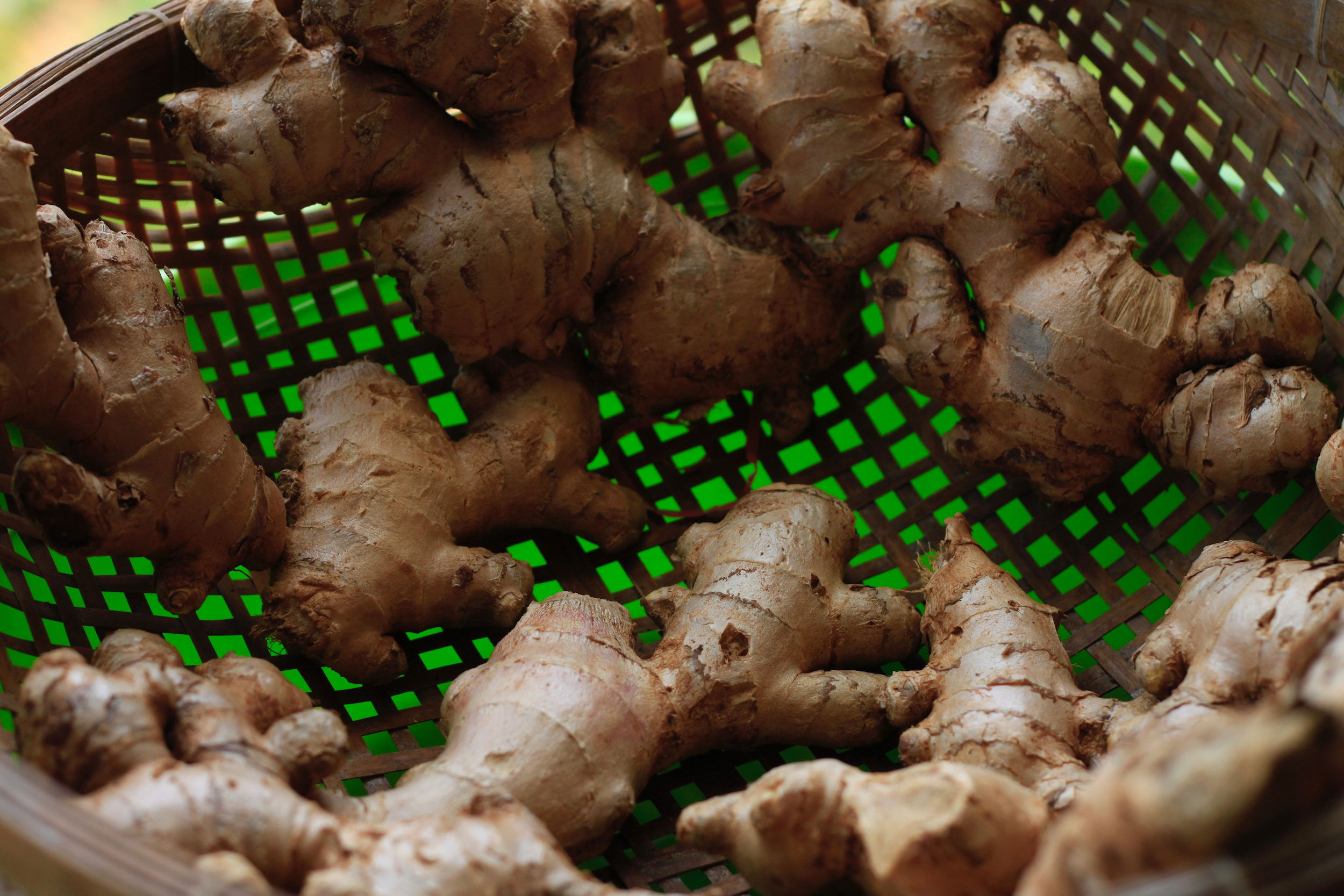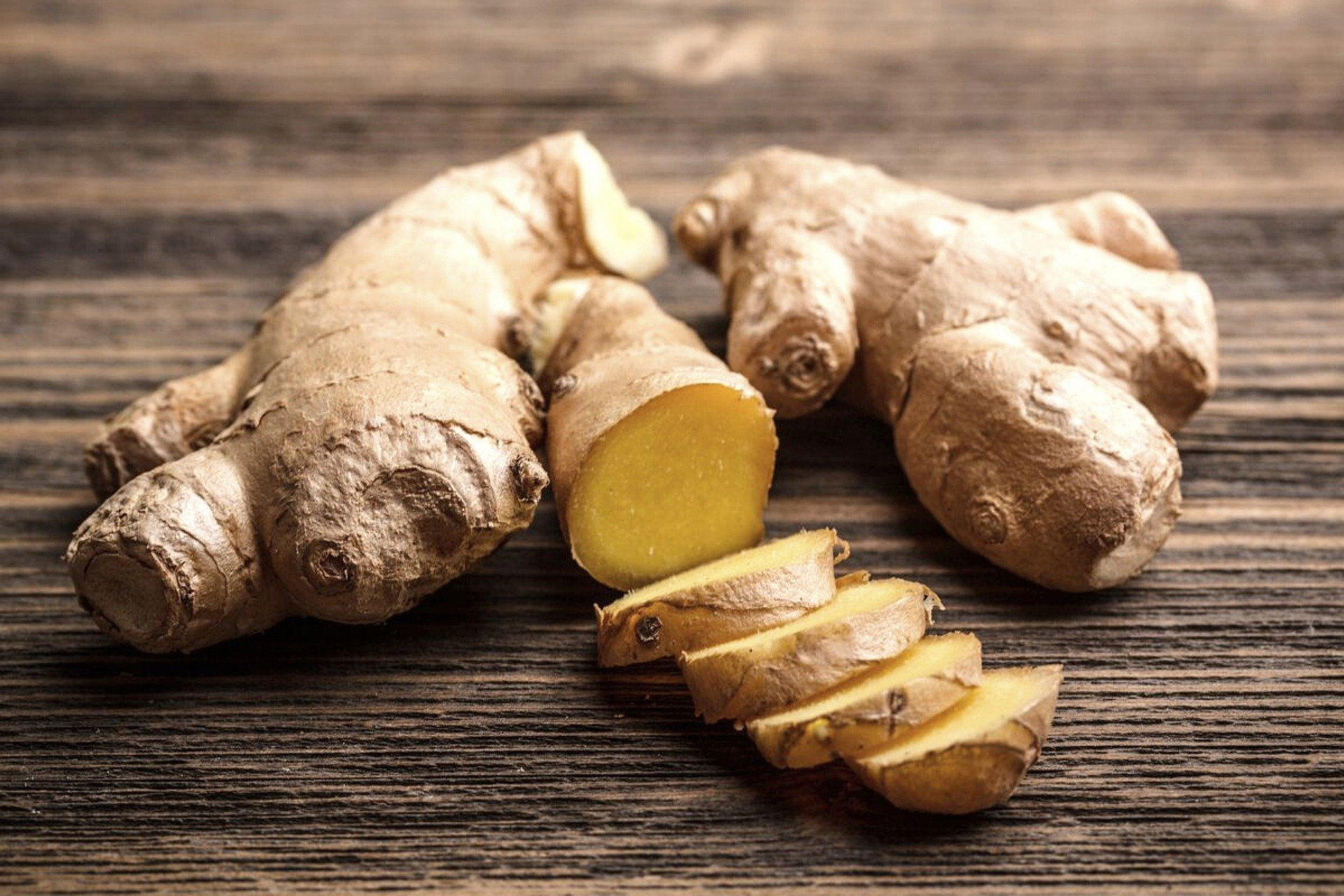Fresh Ginger in Portugal's Cuisine

Portuguese cuisine is a rich tapestry of flavors and ingredients, and one ingredient that has become increasingly popular in recent years is fresh ginger. While ginger is not native to Portugal, it has been a staple ingredient in the country's cuisine for centuries, thanks to the influence of trade routes and colonizers. Today, ginger is used in a wide range of dishes, from soups and stews to desserts and beverages, and is prized not just for its flavor, but also for its health benefits. In this article, we will explore the role of fresh ginger in Portuguese cuisine, from its cultural significance to traditional recipes and more.
Introduction to Fresh Ginger in Portugal's Cuisine
Portuguese cuisine is known for its bold flavors and fresh ingredients. One ingredient that has been gaining popularity in recent years is fresh ginger. This root has been used in Portuguese cooking for centuries, and is a staple in many traditional recipes. From savory stews to sweet desserts, ginger brings a unique and flavorful touch to many Portuguese dishes.
The Origin of Fresh Ginger in Portuguese Cuisine

Ginger was introduced to Portugal via trade routes with Southeast Asia and India in the 15th century. Since then, it has been adopted into Portuguese cuisine and is now a common ingredient in many traditional dishes. In fact, many of the early explorers who discovered new spice routes and trade routes were Portuguese, and they likely encountered ginger during their travels.
Why Fresh Ginger is an Important Ingredient in Portuguese Cooking
Fresh ginger is a versatile ingredient that adds a warming, spicy flavor to dishes. It's also known for its health benefits, which we'll discuss later in this article. In Portuguese cuisine, ginger is often used in savory dishes like soups, stews, and marinades, as well as in sweet desserts like rice pudding and cakes. Its distinct flavor and aroma make it a popular ingredient in many traditional Portuguese recipes.

The Health Benefits of Fresh Ginger
In addition to its culinary uses, fresh ginger also has numerous health benefits. Here are just a few of the ways that adding ginger to your diet can improve your health:
Ginger's Anti-Inflammatory Properties
Ginger contains compounds called gingerols and shgaols, which have anti-inflammatory properties. This makes ginger a natural remedy for conditions like arthritis and other inflammatory diseases.
How Ginger Can Help with Digestion and Nausea
Ginger has long been used as a natural remedy for digestive issues like nausea, bloating, and indigestion. It's believed that the compounds in ginger can help to speed up the digestive process and reduce inflammation in the gut.
Ginger's Immune-Boosting Qualities
Ginger has been shown to have immune-boosting qualities, which can help to ward off infections and illnesses. It's also rich in antioxidants, which help to protect the body from free radicals and other harmful substances.

Traditional Portuguese Ginger Recipes
If you're looking to incorporate more fresh ginger into your diet, why not try some traditional Portuguese recipes that feature this flavorful root? Here are a few ideas to get you started:
Caldo Verde Soup with Fresh Ginger
Caldo Verde is a traditional soup made with kale, potatoes, and chorizo sausage. Adding fresh ginger to this soup gives it a warming, slightly spicy flavor that pairs perfectly with the other ingredients.
Bacalhau à Gomes de Sá with Ginger
Bacalhau à Gomes de Sá is a classic Portuguese dish made with salt cod, potatoes, onions, and olives. Adding ginger to this dish gives it a unique twist and enhances the flavors of the other ingredients.
Arroz Doce (Portuguese Rice Pudding) with Ginger
Arroz Doce is a sweet and creamy rice pudding that's popular in Portugal. Adding fresh ginger to this dessert gives it a subtle, spicy flavor that balances the sweetness of the rice and sugar.

The Cultural Significance of Ginger in Portugal
In addition to its culinary and health benefits, ginger also has cultural significance in Portugal. Here are a few examples:
Ginger in Portuguese Folk Medicine
Ginger has long been used in Portuguese folk medicine as a natural remedy for a variety of ailments. It's believed to have anti-inflammatory, digestive, and immune-boosting properties, and is often used to treat conditions like nausea, inflammation, and pain.
Ginger in Portuguese Festivals and Celebrations
Ginger is often featured in traditional Portuguese festivals and celebrations. For example, in the town of Ponte de Lima, there is a festival dedicated to ginger that includes tastings, cooking demonstrations, and a gingerbread house competition. Ginger is also a common ingredient in many traditional holiday dishes, like Bolo Rei (King Cake), which is a sweet bread filled with dried fruits and nuts, and flavored with ginger and other spices.

How to Incorporate Fresh Ginger into Your Cooking
Fresh ginger is a versatile ingredient in cooking, and it can add a unique and spicy flavor to sweet and savory dishes. Here are some tips on how to use fresh ginger in your cooking:
Substituting Fresh Ginger for Dried Ginger
If you don't have fresh ginger, you can substitute it with dried ginger, but be aware that the flavor will be less fresh and more concentrated. Generally, one teaspoon of grated fresh ginger is equivalent to ¼ teaspoon of dried ginger.
Using Ginger in Sweet and Savory Dishes
Fresh ginger can be used in many dishes, from stir-fries and curries to baked goods and desserts. Try adding grated ginger to marinades, sauces, and dressings for an extra kick of flavor. You can also use it in smoothies and juices for a healthy boost.
Pairing Ginger with Other Portuguese Ingredients
In Portuguese cuisine, ginger can be paired with local ingredients such as seafood, citrus fruits, and honey. Try making a ginger and honey glaze for roasted fish or adding ginger to orange juice for a refreshing drink.

Where to Find Fresh Ginger in Portugal
If you're looking to cook with fresh ginger in Portugal, here are some places where you can find it:
Local Markets and Grocery Stores
Fresh ginger is widely available in local markets and grocery stores throughout Portugal, especially in larger cities like Lisbon and Porto.
Ginger Farms and Producers in Portugal
There are also some ginger farms and producers in Portugal, such as Quinta do Arneiro in Mafra and Horta do Adão in Algarve, where you can buy fresh ginger directly from the source.

Exploring Ginger Farming in Portugal
Ginger farming is a relatively new industry in Portugal, but it has been growing in recent years. Here are some things to know about ginger farming in Portugal:
The History of Ginger Farming in Portugal
Ginger is not a native plant to Portugal, and it was introduced to the country in the 16th century through trade with Asia. It wasn't until the 21st century that ginger farming started to gain popularity in Portugal.
Challenges and Opportunities for Ginger Farmers in Portugal
The biggest challenge for ginger farmers in Portugal is the climate, as ginger requires a warm and humid environment to grow. However, the country's mild winters and long, sunny summers provide good conditions for ginger farming. Some opportunities for ginger farmers in Portugal include exporting to other European countries and creating innovative ginger-based products.

Ginger-Based Beverages in Portuguese Cuisine
Ginger is also a popular ingredient in Portuguese beverages, both alcoholic and non-alcoholic. Here are some examples of ginger-based beverages in Portuguese cuisine:
Ginger Beer and Other Fermented Beverages
Ginger beer is a fizzy, non-alcoholic drink made from ginger, sugar, and yeast. It is a popular choice for hot summer days and can be found in many bars and restaurants in Portugal. Other fermented beverages that use ginger include kombucha and ginger ale.
Traditional Ginger Tea Recipes
Ginger tea is a popular remedy for cold and flu symptoms, and it is also a comforting beverage on a chilly day. In Portugal, ginger tea is often made with lemon, honey, and cinnamon for added flavor. You can also make a variation with fresh mint and honey for a refreshing twist.
In conclusion, fresh ginger is a versatile and valuable ingredient in Portuguese cuisine. From its health benefits to its cultural significance, this root has found its place in the hearts and kitchens of the Portuguese people. Whether you're a seasoned chef or a curious foodie, we hope this article has inspired you to incorporate fresh ginger into your cooking and explore the rich flavors of Portugal.

FAQ
What is the difference between fresh ginger and dried ginger?
Fresh ginger has a moist, tender texture and a sweet, slightly spicy flavor. Dried ginger, on the other hand, has a dry, fibrous texture and a stronger, more concentrated flavor. While both forms of ginger can be used in cooking, fresh ginger is generally preferred in Portuguese cuisine for its delicate flavor and versatility.
Where can I find fresh ginger in Portugal?
Fresh ginger can be found in most grocery stores and supermarkets in Portugal, as well as in local markets and specialty food shops. If you're looking for high-quality, locally sourced ginger, you may also want to consider visiting a ginger farm or producer in Portugal.
What are some other ingredients commonly used in Portuguese cuisine?
Some other key ingredients in Portuguese cuisine include olive oil, garlic, onions, tomatoes, peppers, potatoes, and a wide variety of seafood and meats. Portuguese cuisine also makes use of a range of herbs and spices, such as parsley, coriander, paprika, and cinnamon.
What are some health benefits of using fresh ginger in cooking?
Fresh ginger has a number of potential health benefits, including reducing inflammation, aiding digestion, boosting the immune system, and even helping to lower cholesterol levels. Ginger may also have anti-cancer properties and has traditionally been used in folk medicine to treat a range of ailments.
